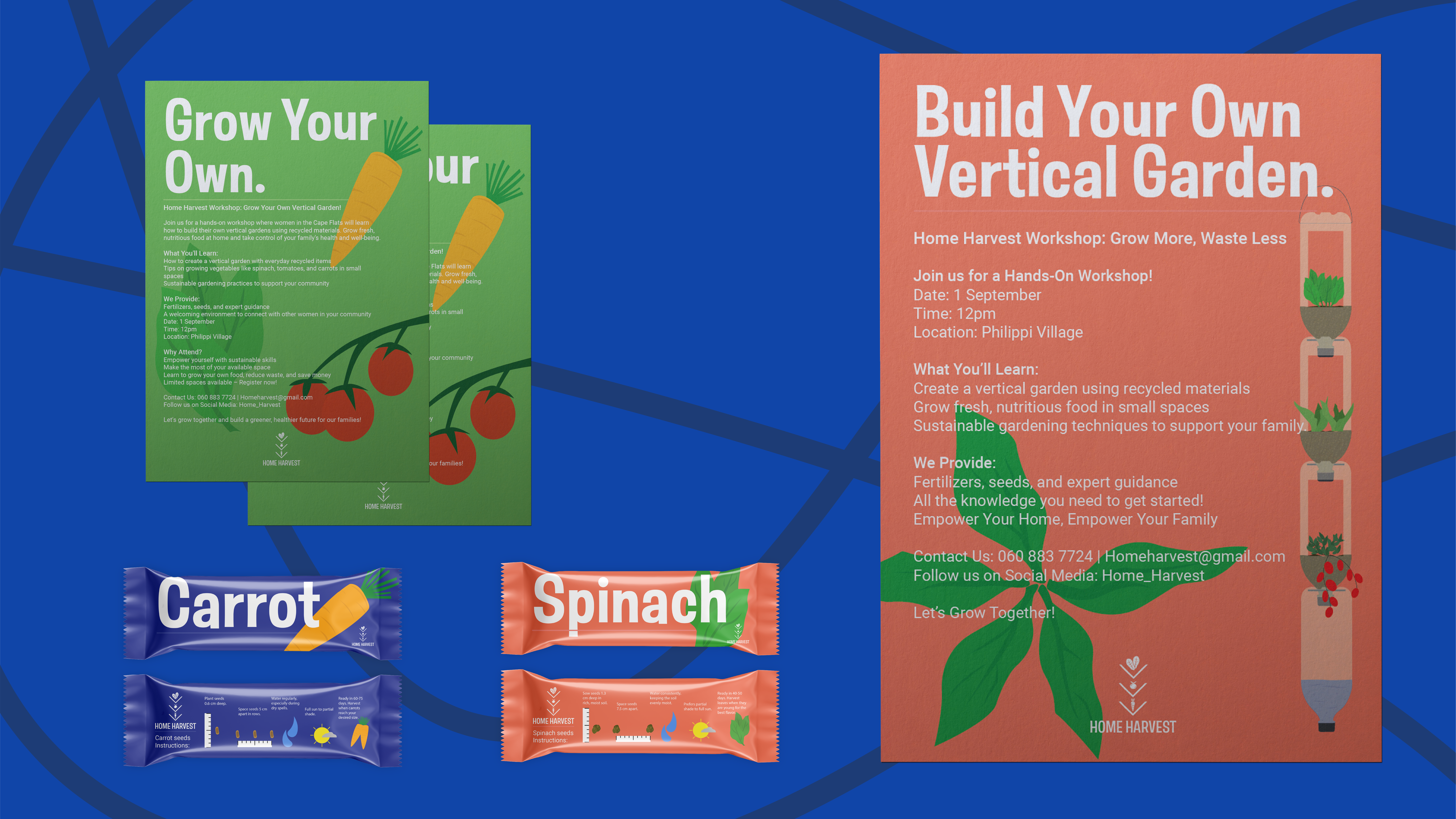





The project focused on addressing severe food insecurity within the Cape Flats community, where 30.6% of households experience significant challenges in accessing nutritious food. The aim was to develop a solution that empowered female-headed households—particularly vulnerable to economic instability—by providing them with a sustainable means to grow their own fresh produce. The brief called for an initiative that would teach women how to create vertical gardens using recycled materials, reducing dependency on external food sources and enhancing their financial stability.
The concept, titled “Home Harvest,” was designed as a community-driven initiative aimed at empowering women to grow their own food using vertical gardens. The strategy focused on three key elements:
Empowerment through Education: Women in the Cape Flats were provided with practical, hands-on workshops and training that taught them how to build vertical gardens using recycled materials such as wooden pallets, plastic bottles, and gutters. The training also included guidance on sustainable agricultural practices, helping participants grow nutritious food at home.
Sustainability & Self-Sufficiency: The concept promoted the use of minimal space and resources through vertical gardening, making it ideal for the urban environment of the Cape Flats. By utilizing recycled materials and space-efficient gardening techniques, the project addressed both environmental and food security concerns.
Community Engagement: The initiative fostered community participation through workshops held in accessible locations, such as Philippi Village, encouraging collaboration, skill-sharing, and support among participants. The content was also disseminated digitally through Instagram carousel posts and stories, raising awareness and engagement.
The visual materials supporting this strategy included A3 posters, A5 flyers, instruction manuals, seed sachets, and Instagram posts. These materials were designed to be clear, informative, and visually appealing to engage the community effectively.
The “Home Harvest” initiative successfully provided women in the Cape Flats with the skills and resources to cultivate their own vertical gardens, significantly improving their access to fresh, nutritious food. The workshops empowered participants to become more self-sufficient, enhancing their household food security while also contributing to environmental sustainability. The project’s digital and physical engagement strategies, including instructional leaflets and social media content, helped increase community participation, creating a sense of ownership and pride among the women involved.
By promoting sustainable practices and fostering a community of shared learning, “Home Harvest” made a meaningful impact on addressing food insecurity in the Cape Flats while encouraging eco-friendly agricultural methods.





